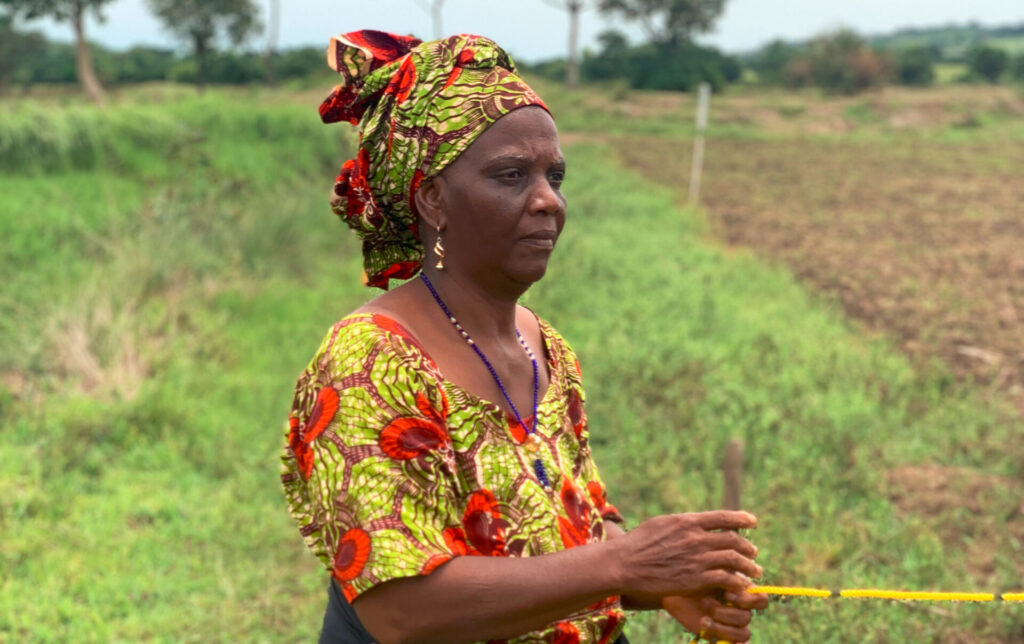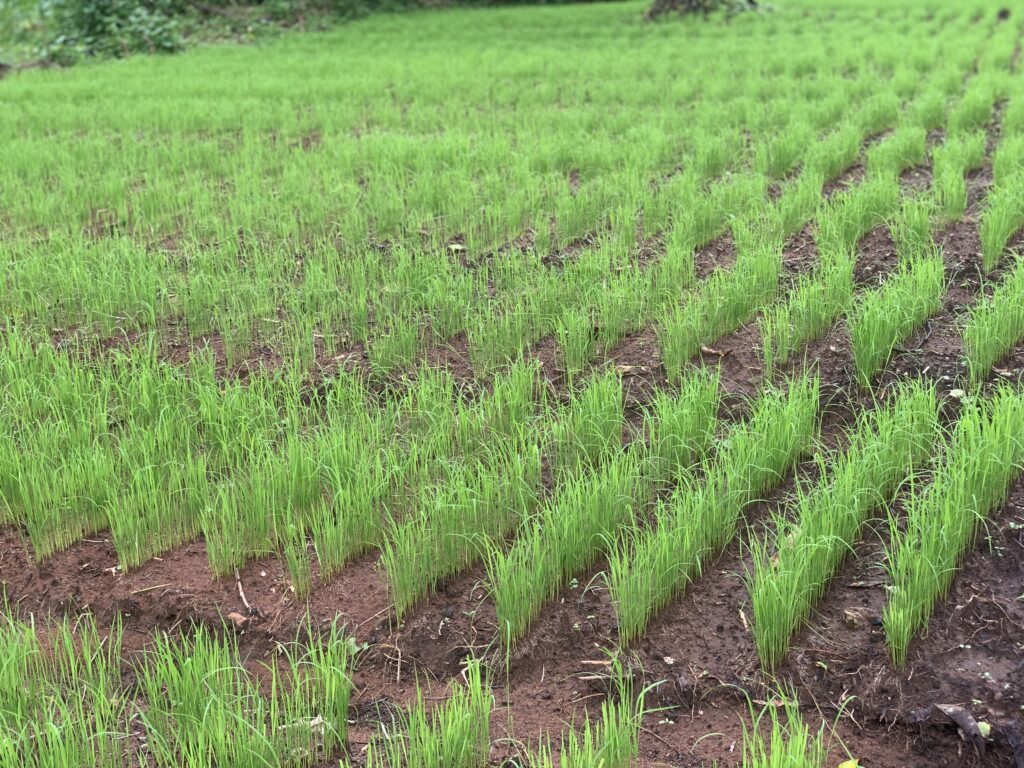
Mariama Bailawa Bah became involved in rice cultivation at an early age, mastering the traditional techniques that had been handed down for generations. For Mariama, growing rice was more than just a means of subsistence – it was a family tradition rooted in her daily life.
Despite years of hard work, yields were often low and unpredictable. “We used to work hard, but the harvests didn’t always reflect our efforts,” Mariama recalled.
Recently, Mariama learned about the Integrated Rural Development of Gaoual, Koundara, and Mali (PDRI/GKM) project, financed by the Islamic Development Bank (IsDB) and implemented by IFDC, in collaboration with Guinea’s Ministry of Agriculture and Livestock. Through this project, Mariama was introduced to a new agricultural technology: urea deep placement (UDP).
“This project has transformed the way I look at farming. I’m proud to be able to grow better food for my family and my community, while preserving our traditions.”
Mariama Bailawa Bah
UDP is a technique that consists of burying fertilizer near the roots of the plant. This enables more efficient nitrogen uptake, reduces losses through volatilization and leaching, and promotes more vigorous crop growth. The technique stands out not only for its potential to boost yields, but also for its contribution to reducing costs for farmers and protecting the environment.

Mariama was able to participate in training, share experiences with other growers, and receive technical support through the project’s farmer field school model. Gradually, she began to understand the benefits of UDP and put this technique into practice.
“When I first heard about this method, I was skeptical. But during the farmer field school training organized by IFDC, I began to understand the potential of this approach. We were shown how to place urea directly at root level, which reduces losses and improves efficiency,” Mariama explained.
Mariama has become a true advocate for this innovative technique in her community. She enthusiastically shares her experience with other women farmers, encouraging them to embrace these modern methods while respecting traditional knowledge.
“This project has transformed the way I look at farming. I’m proud to be able to grow better food for my family and my community, while preserving our traditions,” she shared.
Mariama is now a model of agricultural transformation in her region. Thanks to PDRI/GKM, she is no longer content to carry on a legacy of traditional practices – she is reinventing it, for herself and for future generations.
The PDRI/GKM project (2019–2025) supports agricultural growth and rural development in Gaoual, Koundara, and Mali prefectures in Guinea by boosting production, improving market access, and strengthening infrastructure. PDRI/GKM is funded by the Islamic Development Bank (IsDB) and implemented by IFDC, the Ministry of Agriculture and Livestock (MAG/EL), Guinea Agronomic Research Institute (IRAG), the Rural Promotion and Agricultural Extension Service (SERPROCA), and farmer organizations.




